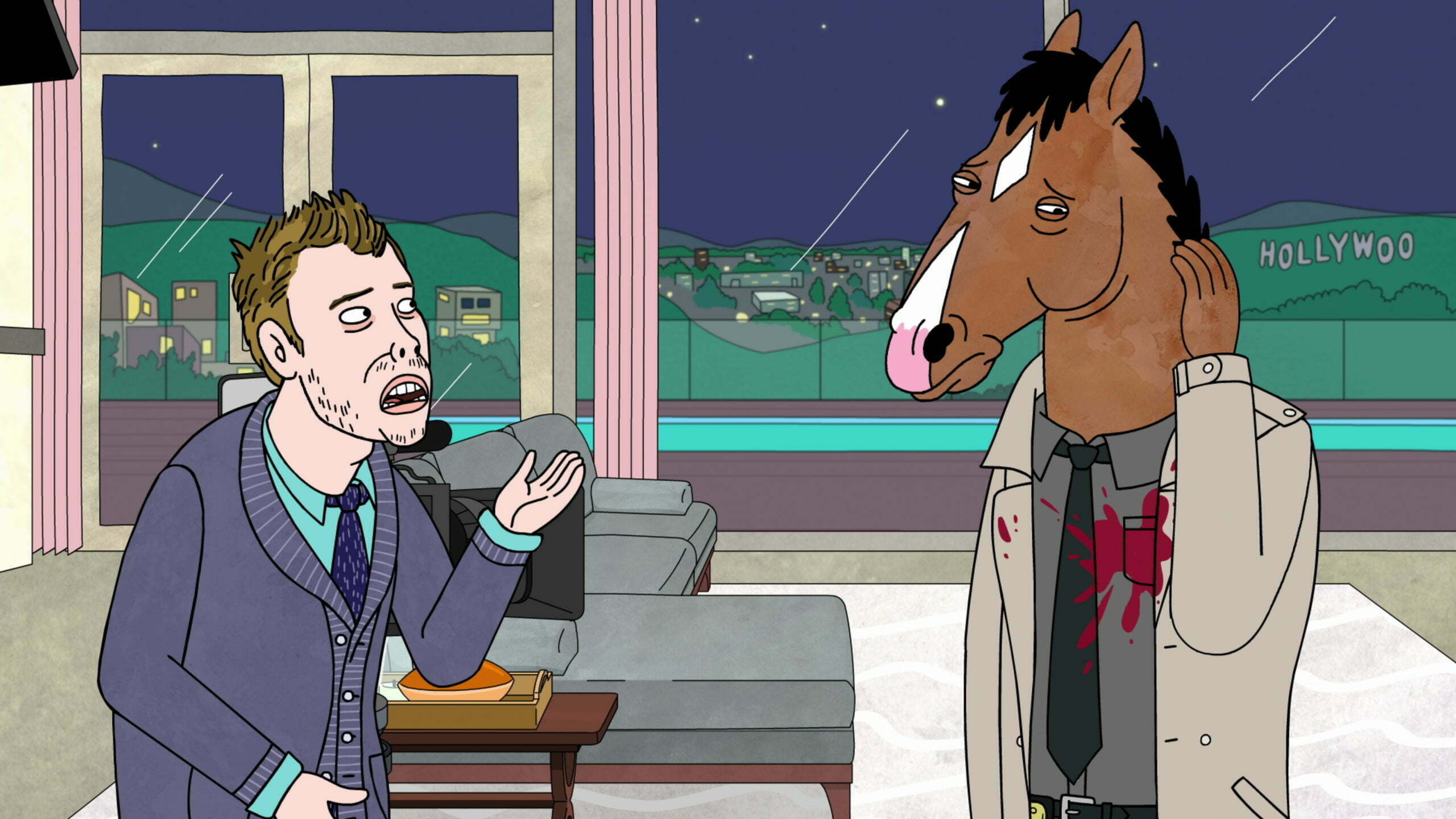Halfway through the first season of BoJack Horseman the show makes a concentrated effort to shed our expectations of what a modern American animated show can be. Through four seasons it has continued to undermine audience expectations with a show that was, at times, more Mad Men than The Simpsons. It’s tackled issues from addiction, depression, miscarriages, and more. In its fifth season it subverts itself by laying bare the enabling of the modern damaged male antihero archetype first popularized in the “Prime TV Era” by shows such as The Sopranos. The show makes no mistakes about it—BoJack is a bad person, and his struggle is not endearing but horrifying.
Look, that’s a gutsy move on its own. The fact that the show wraps this revelation in the #MeToo movement while simultaneously attempting a takedown of the wunderkind showrunner type personified in the likes of Matthew Weiner and Kurt Sutter is just plain crazy. But that’s what has always made the show fascinating, and this season is arguably its best. One entire episode is an extended monologue. More surprising is that this actually works and doesn’t feel like simply a stunt. I’ve said before that BoJack is not just a great animated show, but a great show in general. In its fifth season, it puts to rest the question of quality and raises a more interesting one—is BoJack the most important show on TV?
I’ve said before that BoJack is not just a great animated show, but a great show in general. In its fifth season, it puts to rest the question of quality and raises a more interesting one—is BoJack the most important show on TV?

